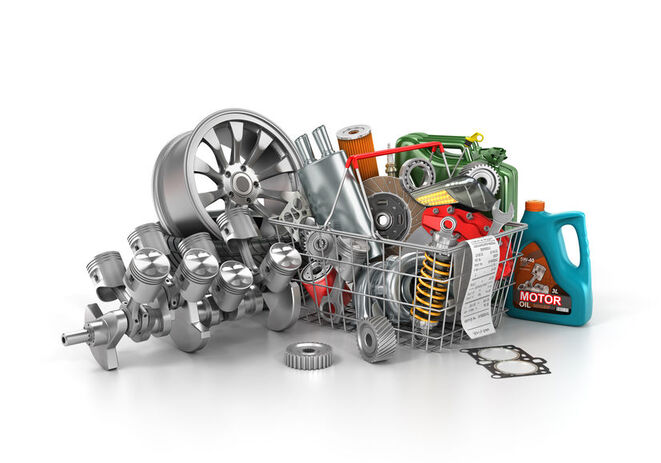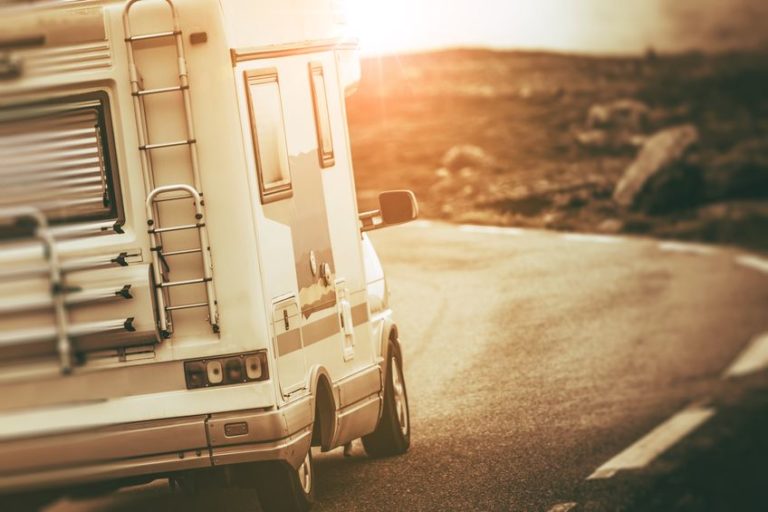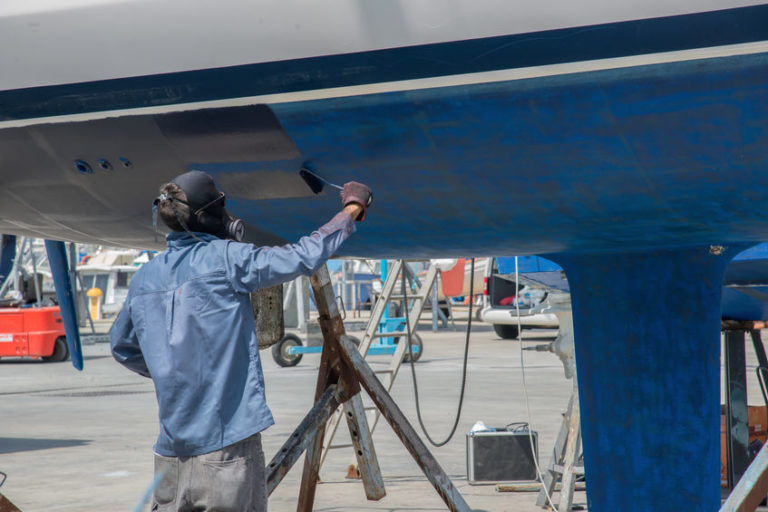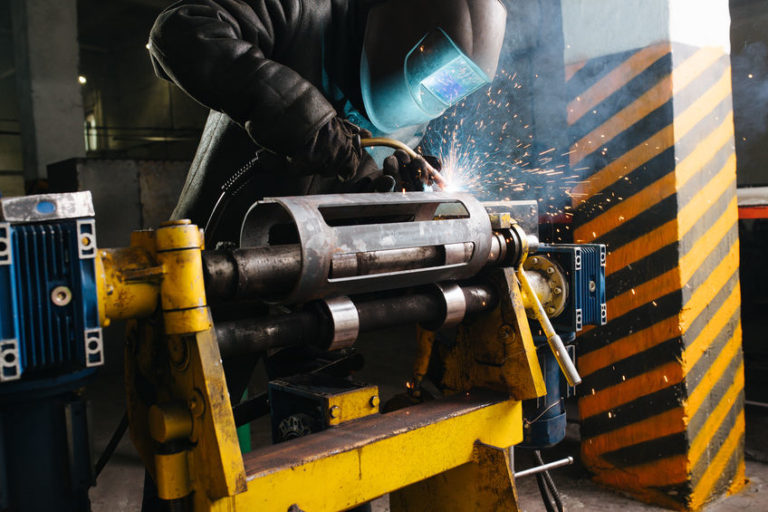Inward processing customs (example: Germany)
It is now normal for many Swiss people to do their weekly shopping in German towns close to the border, such as Constance, Weil am Rhein, Waldshut or Singen. Food and many other products are much cheaper in neighboring Germany and certain products are not available in Switzerland anyway. So why not apply this principle to the repair and conversion of vehicles or machines? This allows the company to benefit equally from lower material costs and lower labor costs. In addition, there are simply no suitable specialists in Switzerland for some refurbishments and models, as many Swiss have already discovered. So-called active refinement makes it possible.
But there are also pitfalls when processing goods and vehicles in Germany. This article will explain exactly how “active refinement” works, how complex it is, the costs involved and where the risks lie.

What is active finishing or passive finishing?
But what is actually meant by active refinement (AV)? This is a customs procedure that is anchored in the Union Customs Code (UCC) of the European Union. Broadly speaking, this involves the temporary import of goods or vehicles from a non-EU country such as Switzerland for processing in the EU, whereby the value of these goods is usually increased after processing. The vehicle or the goods are therefore “refined”.
Whenever we talk about inward processing in this article, we are referring to inward processing in Germany. From the point of view of Swiss customs, we are actually carrying out outward processing abroad, but from the point of view of EU customs, it is inward processing, as the processing is actively carried out in the EU. Under no circumstances should this be confused with inward processing in Switzerland.
This would involve the processing of EU goods in Switzerland, in other words outward processing from an EU perspective. If we have queries here, e.g. to the customs office, we always have to make sure that we mention the correct procedure. Otherwise, the customs officer will not be able to help us, as he is working on the basis of a different set of circumstances.
When should the inward processing procedure be used?
Below are some examples of when we have to declare the inward processing procedure for customs clearance and when we do not.
Example 1: If, for example, we drive our motorhome from Switzerland to Germany to have a trailer coupling fitted there, this is an AV (active refinement) from an EU perspective and a passive refinement from a Swiss perspective. The reason for this is that the value of the motorhome is higher later on, as the vehicle now has a towbar. The inward processing procedure would therefore have to be declared in advance to the German customs offices and the outward processing procedure to the Swiss customs offices. “Wage” processing because work is carried out here that is financially remunerated.
Let’s take another example: We take our car to Germany to have a “service” done, i.e. a simple vehicle check, during which, for example, oil is topped up and tires are replaced (with the old tires being disposed of). There is no increase in the value of the vehicle here, as these are only life-sustaining measures. Without service and new tires, the car will eventually stop running, so we HAVE to do this work. Without an increase in value, there is therefore no inward processing and the procedure would therefore NOT have to be applied, since in this particular case we can temporarily enter Germany with the vehicle as a tourist in tourist traffic, so to speak, without having to declare this under customs law (provided we transfer the vehicle on our own wheels). It is important to note that we are not allowed to buy new rims or similar accessories, for example, as these are not life-sustaining measures but clearly represent an increase in value. Otherwise an active refinement would have to be registered again.
Another example: We want to bring a machine or vehicle engine (without a vehicle) to Germany because it no longer works. This is now to be made functional again. In this case, one might think that these are life-sustaining measures, so that no active refinement would have to be declared. However, this is incorrect in this case, as we cannot bring the engine to Germany in tourist traffic. This is again an active refinement, as the engine is transported (supercharged).
What happens if I do not use the active finishing process?
Many people are probably wondering whether they really need to use the inward processing method if it is so complicated and involves additional costs. You could also ask yourself how customs would even know that the vehicle was processed in Germany to increase its value. In fact, for some time now, customs have been checking whether attachments to the vehicle have been declared for customs purposes. This can be a routine check or can also take place directly when you leave Germany. Many Swiss know it from shopping – you have the invoice stamped directly by the customs office in order to get the German VAT back later. If a workshop is then listed on the invoice, the process may be looked at more closely and the vehicle checked for refinements. If it is then discovered that it has not been properly registered for customs purposes, the vehicle owner may be subject to criminal tax proceedings, as the vehicle has been removed from customs supervision without authorization. In the best case scenario, this would result in a fine – but one must not forget that criminal proceedings will then be initiated, which can have far-reaching consequences.
General process of active finishing
After you have clarified in advance with the customs office and/or us, i.e. the customs agency, whether the inward processing procedure is to be applied in your case, the further procedure would generally be that you provide us as the customs agency with all the necessary information. This will enable us to process the goods properly at customs. In theory, it would also be possible to declare the procedure to customs yourself. However, it is important to know that this is a customs and tax declaration that you are submitting. If you fill in the wrong forms here or fill in the wrong information in the fields out of ignorance, in the best case scenario you will be at customs on the day of the transfer and will not get any further. In the worst case, high charges are due immediately or when the vehicle is returned. We therefore recommend having it done directly by a specialist who carries out this process every week. Please do not hesitate to contact us.
Transfer and implementation of inward processing
As soon as we have all the information and documents from you, you will receive an e-mail with further information on the border procedure.
This means that you are well prepared on the day of the transfer and can collect the documents directly from our office at the border. After you have finished with the documents
have been to the customs office and deposited the security, a process with a registration number is opened at the customs office. This registration number
as well as the receipt for the security deposit as a scan or photo so that we can register the re-export later.
Settlement of the proceedings
In order to be able to complete the IP procedure, an export declaration must first be registered in the German customs system. This means that the customs office at the location of the company carrying out the processing wants to see the goods before they are re-exported. Customs would therefore like to ensure that the goods have not been modified contrary to the applicable prohibitions and restrictions and are re-exported in this condition. Prohibitions and restrictions on exports include, for example, goods that have been fitted with dog or cat fur, items that can also be used for torture or goods from certain regions of the world.
For this reason, the goods or the vehicle cannot simply be driven back to the border once the processing has been completed. As a customs agency, we must enter the export declaration into the customs office system. Customs then decides for each individual case whether it wants to see the vehicle or the goods before they can be released for export. The goods can only be exported from the EU once they have been approved. You will then receive further information from us by e-mail about the procedure at the border for returning the vehicle. On re-importation to Switzerland, Swiss import duties (customs duties + VAT) are then incurred on the company’s wage costs from Germany. The customs rates vary depending on the goods and weight. In the case of vehicles, it is usually CHF 12-15 customs duty per 100 kg weight of new material and 7.7% VAT on the new material and on the labor costs (+ on the customs clearance costs and the transport costs).
We will be happy to provide you with the details for your individual case by telephone or in writing by e-mail.
Active refinement: car or motorhome
For the customs declaration, we generally need the following information and documents, e.g. as a scan or clearly legible photo of you in the case of vehicles,
e.g. refinement of a car or active refinement of a motorhome:
- Vehicle registration scan
- Information on the mileage of the vehicle
- Pro forma invoice issued by you for the current value of the vehicle or a vehicle valuation, e.g. from Comparis or Eurotax, or comparative offers for the value from www.mobile.de or www.autoscout24.ch. the original purchase contract may also be relevant as a value calculation
- If applicable, list of defects that can be checked by customs and that reduce the value
- where the vehicle is finished (name of the company and EORI number)
- How long does the refinement take?
- what will be refined (ideally: cost estimate)?
- Contact details of the company and your contact details
- When and across which border will the vehicle cross?

In addition, we always need a customs clearance authorization from you in Switzerland and from the German company.
We can send you the corresponding template of the customs authorization by e-mail. If the German company does not have an EORI no. we will be happy to explain how to apply for an EORI number.

Here, too, we need the customs clearance authorization from both parties, as with the finishing of a car.
An active refinement must always be registered for boats, even for simple refurbishments.
Actively refine boats and ships
The refinement of a boat, e.g. as winter storage, can be registered with the following documents:
- Scan boat license or Declaration of Conformity
- If necessary, an appraisal of the boat or the original purchase contract.
Pro forma invoice or declaration of value to be submitted / prepared by you - where the boat is refined or reconditioned (name of the company and its EORI number)
- How long does the refinement take?
- what will be refined (ideally: cost estimate)?
- Contact details of the company and your contact details
- for example, the boat is transported across Lake Constance or loaded onto a trailer/truck?
Machinery, engines and other goods for inward processing from Switzerland to Germany
For machines or similar equipment, we need you to provide the finishing:
- Serial number of the machine or motor
- if necessary, photos of the goods, always if there is no serial number
- Pro forma invoice for the current value of the goods
- Number and type of packages
- Gross and net weight of the goods (i.e. weight with or without packaging).
- where the goods are processed (name of the company and EORI number)
- what is being refined (ideally: cost estimate)?
- Contact details of the company and your contact details
- How long does the refinement take?
- When and across which border do the goods arrive?

As with boats and vehicles, a customs clearance authorization is also required from the person or company in Switzerland and from the German processing company.
Requirements for active refinement
With every processing operation, the goods must be returned to the original country after processing.
To ensure this, customs requires a security deposit from the declarant. For this purpose, the
Import duties are charged in the same way as they would be for “normal” customs clearance. The survey of the
The provision of security is at the discretion of the respective customs officer. If the tax amount is more than EUR 1,000
However, a safety performance is almost always required. Otherwise you could state that you
goods only in the EU and would not have to pay any import duties, even if the goods
would never come back. The German state naturally wants to prevent this.
Important: If it is not possible to return the goods, the security deposit will be retained by the customs office.
Calculation of the security deposit
The security deposit, which must be deposited with the customs office for the duration of inward processing, amounts to
usually a few percent of the value of the goods for customs duties (depending on the type and value of the goods) as well as 7% or 19% VAT.
The duty rate is very different for most goods. For normal cars, this is usually 10%
of the vehicle value. In the case of classic cars that are in their original condition, however, the following, for example
no customs duties are due. We will be happy to inform you of the exact customs rate, please contact us.
In any case, VAT is always added, i.e. usually 19% German VAT. The reduced VAT rate
rate of 7% only applies to a few products such as books, food, vintage cars and a few other exceptions.
When calculating the security deposit, it is important to remember that customs duties must also be taxed, which many people do not know.
In addition, the freight costs and customs clearance costs must also be added, on which duties are also incurred.
Calculation example 1: “normal vehicle”, vehicle value 10,000 EUR, for refinement to Germany
Vehicle value = EUR 10,000
Transportation costs and customs clearance = EUR 800
Total value incl. Transportation and customs clearance = 10800 EUR
10% customs duties apply = 1080 EUR
The amount of 10800+1080 EUR = 11880 is now subject to 19% VAT = 2257.20 EUR
This means a total of EUR 1080 customs duties + EUR 2257.20 VAT = EUR 3337.20 duties.
The possible tax amount of EUR 3337.20 would therefore have to be paid for the period of
of processing at the customs office. After completion of the customs procedure and
If the vehicle was returned, we would be reimbursed the security deposit.
Calculation example 2: “Classic car”, vehicle value = EUR 20,000, for shipment to Germany
Vehicle value = EUR 20,000
Transfer on own axle, so the approximate costs for gasoline, wear and tear etc. are = 100 EUR
Customs clearance costs for the declaration for inward processing incl. Preparation of all documents = 380 EUR
Total amount therefore = EUR 20,480 (no customs duties apply for classic cars, only 7% VAT)
Thus 7% = 1433.60 EUR would have to be deposited.
Our duty calculator may also help you to better calculate the import duties for normal vehicles.
Costs for active refinement and conclusion
For active finishing, you must expect total processing and handling costs of approx. 380 EUR / 390 CHF.
In addition, there are the import duties, i.e. 7.7% VAT on the new material, on the wage and transportation costs + the
Security deposit, which you must provide for the duration of the active refinement. If you now compare,
you can see that the installation of a trailer coupling in Switzerland costs approx. 1900 CHF, whereas in Germany
it only costs approx. 900 EUR net + procedure costs of 380 EUR. So if you want to save the time required to transfer the vehicle or
of the goods, you can still save a few hundred euros or francs on processing (here in the example approx. 500-600 EUR/CHF).
For those who would like an all-round carefree package, we can also arrange transportation of the goods or vehicle.
take over. We look forward to hearing from you.
